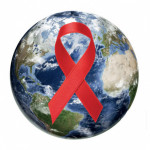A number of community groups, including the Treatment Action Group, Healthgap and South Africa’s Treatment Action Campaign, have signed an “open letter” to the head of the World Health Organization (WHO) concerning guidelines for treatment recommendations for sero-discordant couples.
Apparently WHO prepared a 72 page booklet detailing these guidelines that was to be distributed at the AIDS conference last month in Rome. The booklets were never distributed and reportedly have been destroyed. Here is a link to what is believed to be the final version of this booklet. The letter from the activist groups to WHO, protesting the withholding of this booklet, follows my post. The one page summary of the guidelines can be found on page nine.
I do not know why the booklets were withdrawn and these guidelines not issued. It may be because of significant concern over the appropriateness of prioritizing treatment for some people with HIV--like those who are coupled--over treatment for those who are not coupled. Or the appropriateness of allocating scarce resources to prioritizing treatment for those who may not need it for their own personal benefit over providing treatment to those who are ill and in urgent need of treatment.
I would like to think the ethical concerns I detail below were part of this decision to withdraw the booklet, but I’m not betting on it. I am going to use this circumstance to address ethical issues I have pondered in recent months, issues I believe to be of profound importance and which have been largely neglected in the enthusiasm for “treatment as prevention” strategies.
The letter to WHO particularly supports recommendation number five, from the draft guidelines. That recommendation reads as follows:
5. ART for HIV-positive partners with ?350 CD4 cells/?L in serodiscordant couples is recommended to reduce HIV transmission to uninfected partners. Strong recommendation, high quality evidence.
This explicitly prioritizes a public health objective over the health of the individual person with HIV. It does not reference the very real possibility, if not likelihood, that treatment for some people >350 CD4 cells may harm them.
It has not yet been demonstrated conclusively that, on average, those with >350 CD4 cells will receive a net benefit from anti-retroviral therapy. The START trial or other research may demonstrate that is the case, but it might also prove that there is more net harm than benefit.
Until we have that research, to recommend such treatment to patients under the guise of it being in their own personal best interest, or in the absence of a very clear informed consent procedure with appropriate recognition of the potential harm, is medical experimentation, at best. Advising patients that such treatment can render them nearly non-infectious is appropriate, but they should also be advised of the potential risks to their own health.
If one reads the entire 72 page document--something very few clinicians will do--one can find this paragraph:
Although there is increasing evidence of potential health benefits for the HIV-positive partner, there is currently insufficient evidence to recommend the initiation of ART for people with ?350 CD4 cells/?L for the treatment of their own HIV infection. The Guidelines Group advised that people with ?350 CD4 cells/?L who are offered ART to prevent HIV transmission to their partners should be informed of the primary reason that they are being offered ART and that ART, once started, should be continued for life.
Where is the recommendation that patients should be informed of the potential adverse affects and the uncertainty as to whether or not the patient will receive any medical benefit from it?
When a patient sees their doctor and the doctor has already decided, based on guidance from public health authorities seeking to reduce transmission, that every patient with HIV should be on treatment and the doctor thusly prescribes, that patient’s right to have medical care based on his or her own best interest has been violated.
Retreating from the principle of respect for individual autonomy seems to be in vogue these days and that ought to be of grave concern to us all. The Nuremberg Code, the Declaration of Geneva and the Declaration of Helsinki are amongst the most important documents protecting this principle. These documents exist provide protection against part of what enabled Nazi atrocities. We neglect this history at our peril.
Recommending treatment for a public health purpose, under the guise of the patient’s best interest or in the absence of disclosing risks and obtaining informed consent, clearly constitutes an ulterior motive. Note this section from the Nuremberg Code (emphases mine):
- The voluntary consent of the human subject is absolutely essential. This means that the person involved should have legal capacity to give consent; should be so situated as to be able to exercise free power of choice, without the intervention of any element of force, fraud, deceit, duress, over-reaching, or other ulterior form of constraint or coercion; and should have sufficient knowledge and comprehension of the elements of the subject matter involved as to enable him/her to make an understanding and enlightened decision. This latter element requires that before the acceptance of an affirmative decision by the experimental subject there should be made known to him the nature, duration, and purpose of the experiment; the method and means by which it is to be conducted; all inconveniences and hazards reasonable to be expected; and the effects upon his health or person which may possibly come from his participation in the experiment. The duty and responsibility for ascertaining the quality of the consent rests upon each individual who initiates, directs or engages in the experiment. It is a personal duty and responsibility which may not be delegated to another with impunity.
For a physician to prioritize a partner’s health, or a potential public health benefit, over the health of the individual patient violates the Declaration of Geneva. Two points from that document (emphases mine):
At the time of being admitted as a member of the medical profession:
- The health of my patient will be my first consideration;
- I will not use my medical knowledge to violate human rights and civil liberties, even under threat;
There are many relevant sections in the Helsinki Declaration, but one in particular addresses the importance of informed consent in circumstances involving unproven interventions that might be of benefit to the individual patient. If informed consent is required for such an intervention believed to be of potential benefit to the patient, albeit at some risk, it surely should be required for such an intervention given to an individual for the potential benefit to others (partners and/or the broader public) but with some risk to the patient being treated (emphases mine):
35. In the treatment of a patient, where proven interventions do not exist or have been ineffective, the physician, after seeking expert advice, with informed consent from the patient or a legally authorized representative, may use an unproven intervention if in the physician’s judgement it offers hope of saving life, re-establishing health or alleviating suffering. Where possible, this intervention should be made the object of research, designed to evaluate its safety and efficacy. In all cases, new information should be recorded and, where appropriate, made publicly available.
Treatment of people with HIV for whom treatment has not been proven to provide a net benefit, in the absence of appropriately informed consent, is also a violation of the International Code of Medical Ethics:
Any act, or advice which could weaken physical or mental resistance of a human being may be used only in his interest.
It astonishes me that so many advocates who have worked so hard to protect the rights of people with HIV, specifically, and to advance a self-empowerment movement more generally, are blind to the very slippery slope represented by this degradation of respect for the rights of individuals and patient autonomy.
Sean Strub
*******
This is the letter sent to WHO protesting their decision to withdraw these draft guidelines:
9 August 2011
Dr. Margaret Chan, Director?General
World Health Organization
Avenue Appia 20,
1211 Geneva 27, Switzerland
OPEN LETTER: CONCERN ABOUT DELAYED GUIDELINES
Dear Dr. Chan:
We are writing with alarm following the International AIDS Society conference in Rome, where it seems that the WHO scrapped release of technical guidelines on HIV testing and treatment for discordant couples. We have obtained a copy of this document, available online: http://dl.dropbox.com/u/
This guidelines document was, according to its own description, finalised after wide consultation. It is well written, pays substantial attention to human rights and makes important recommendations. Undoubtedly, as with any complex WHO guidelines document, there are aspects of the report that will draw criticism and that could be improved. However, the WHO, after following its own strict procedures for developing guidelines, is duty-bound to publish.
In particular we welcome recommendation five:
ART for HIV-positive partners with ?350 CD4 cells/?L in serodiscordant couples is recommended to reduce HIV transmission to uninfected partners.
The evidence for this recommendation came after over a decade of evidence culminating with the HPTN 052 trial, which showed a 96% reduction in HIV transmission through ARV treatment. What was obvious prior to the last few months has now become clear scientific consensus: antiretroviral treatment not only prevents mortality and morbidity, but it prevents infection among discordant couples. WHO is now failing in its responsibility to help implementing countries and program managers translate this science into policy. Importantly, this science directly impacts on practice that can be implemented immediately: the infrastructure, human rights framework, and technologies required for testing and counseling followed by ARV initiation are already in place?what is lacking is policy guidance.
These guidelines are urgently needed by doctors and implementing agencies throughout the world to support people living with HIV and their partners to make informed decisions about their sexual relationships and reproductive choices. In the coming months national governments will be revising their guidelines and major global initiatives will be creating their strategies in the area of discordant couples?all without guidance from WHO. Meanwhile, at the local level clinicians will see patients without any clear indication of how to use one of the most effective prevention tools at their disposal in ARVs.
In particular, we are disturbed by reports that key donors to WHO including the Bill & Melinda Gates Foundation may have unduly influenced the decision to halt publication of these completed guidelines, fundamentally undermining the legitimate guidelines development process. We believe this is inappropriate?and is resulting in a failure to implement proven life-saving, disease-preventing practice.
These guidelines should be published immediately. Therefore we ask:
WHO release the document Couples HIV Testing and Counseling and Antiretroviral Therapy for Treatment and Prevention in Serodiscordant Couples immediately.
2. Can we be sure that when it is released the following paragraph, on page 6, will remain in the document and remain truthful? ?All members of the Guidelines Group and peer reviewers were asked to complete a WHO declaration of interest form. Seven people declared potential conflicts of interest. These were discussed by the WHO steering group and then with the Guidelines Group. No one declared a potential conflict of interest that was thought to be significant.?
We note that additional guidelines are also needed regarding PrEP?an ARV-based prevention strategy that could complement early initiation of treatment. We are dismayed that WHO?s actions might be contributing to the unnecessary pitting of PrEP and treatment as prevention against each other.
As you know, we are working in an environment where WHO?s independence, and relevance, is being regularly questioned by policy makers and governments. Your urgent corrective action can help put to rest these questions.
Sincerely,
AIDS and Rights Alliance of Southern Africa (ARASA)
Global Network of People Living with HIV/AIDS (GNP+)
Health GAP (Global Access Project)
HIV i-Base
Treatment Action Campaign (TAC)
Treatment Action Group (TAG)
UK Stop AIDS Campaign







10 Comments
10 Comments